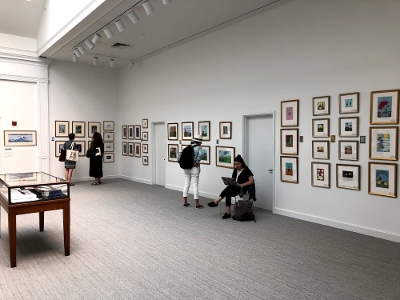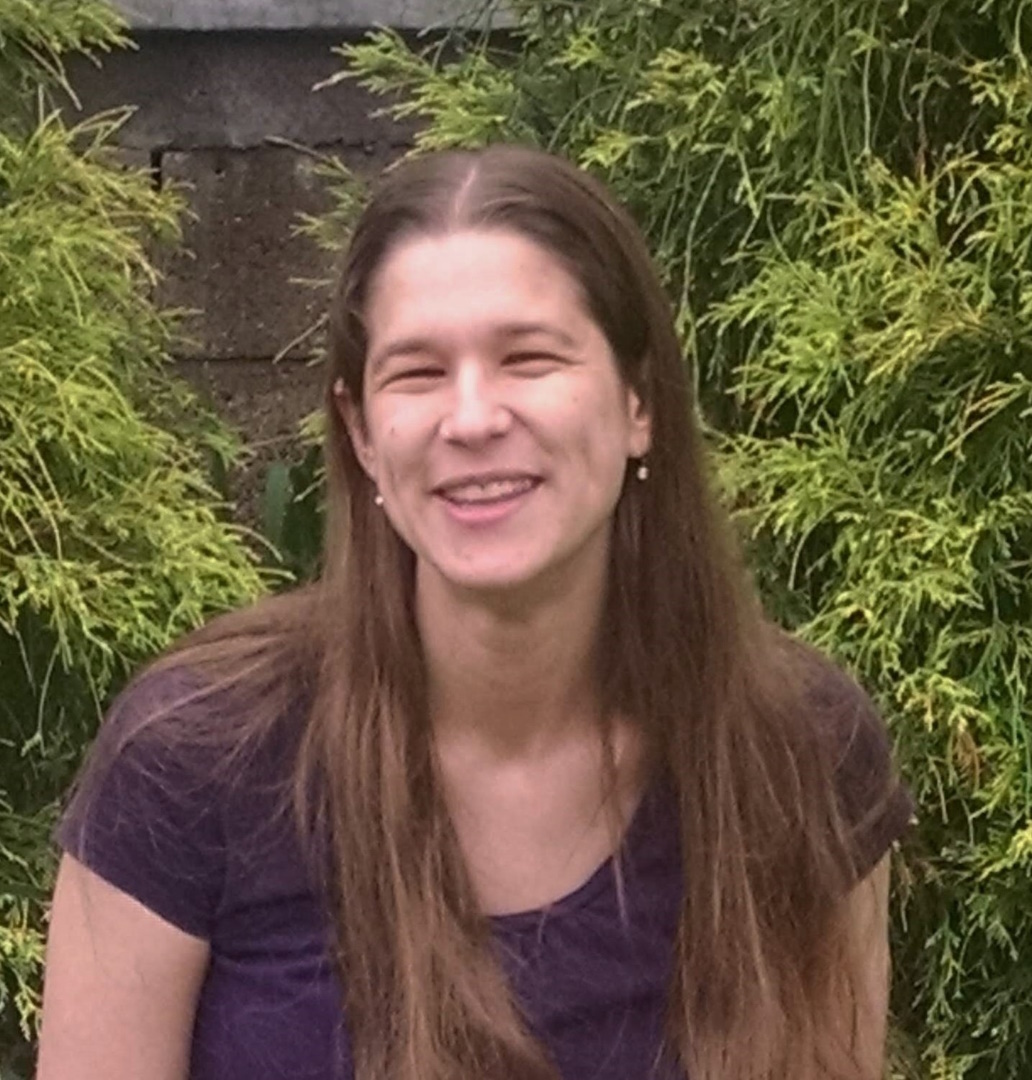
Find more great Horn Book content at these links:
Recommended books: reviews and themed booklists
App and e-book reviews
Movie reviews
Event news and recaps
Events calendar
Conference Report: 2019 Children's Literature Summer Institute at Simmons University: "Make Way"
This past weekend, Martha Parravano, Cynthia K. Ritter, and Shoshana Flax took turns attending “Make Way,” the 2019 Summer Children’s Literature Institute at Simmons University. Here are our (chronological) combined impressions from this weekend.
This past weekend, Martha Parravano, Cynthia K. Ritter, and Shoshana Flax took turns attending “Make Way,” the 2019 Summer Children’s Literature Institute at Simmons University. Here are our (chronological) combined impressions from this weekend.
Cindy:
On Thursday night, Shoshana and I caught up over dinner with some of our Simmons grad school pals. We slipped back into discussion like it has been no time — though, eek, it’s been ten years! I spent most of the next day in the Linda K. Paresky Center listening to, and being inspired by, the institute speakers (complete program here). Duncan Tonatiuh explained how he got started as an artist, what led him to children’s books and working in his Mixtec artistic style, and just how he creates his art, first as pen drawings in a notebook then colored in Photoshop using photographed images for a collage effect. Did you know Tonatiuh started working on Undocumented: A Worker’s Fight for his senior thesis in college before any of his other books were published?
 I next went to the Trustman Gallery to check out Grace Lin’s gorgeous art exhibit: “Make Way for Dumplings: 20 Years of the Art of Grace Lin.” I had never seen her original illustrations in person before, and I came away with a real appreciation for just how beautiful they are as works of art. From the patterned clothing her characters wear (which look like collage but are all hand-drawn!) to each snowflake being truly one of a kind, something about each piece caught my eye, including a cameo by a certain mooncake-eating little girl (from Caldecott honoree A Big Mooncake for Little Star) in the window of one scene from Lin’s forthcoming A Big Bed for Little Snow.
I next went to the Trustman Gallery to check out Grace Lin’s gorgeous art exhibit: “Make Way for Dumplings: 20 Years of the Art of Grace Lin.” I had never seen her original illustrations in person before, and I came away with a real appreciation for just how beautiful they are as works of art. From the patterned clothing her characters wear (which look like collage but are all hand-drawn!) to each snowflake being truly one of a kind, something about each piece caught my eye, including a cameo by a certain mooncake-eating little girl (from Caldecott honoree A Big Mooncake for Little Star) in the window of one scene from Lin’s forthcoming A Big Bed for Little Snow.
After lunch came a discussion between Elisha Cooper and his editor (Simmons alum) Emily Feinberg about his Caldecott Honor-winning book, Big Cat, Little Cat, which I’d helped copyedit when I was working at Macmillan. They each shared their memories of how the book came to be and what it was like working on it together (and also on Cooper’s upcoming book), which gave attendees a real sense of what a good author/editor relationship can be like. Interesting takeaways from this discussion: inspiration for the story came from his daughters’ cats; Cooper sketched out most of the book during a lunch with Feinberg; and in an early version of the cover illustration, Cooper — inspired by Blueberries for Sal — included indigo-blue for the ground, and although the cover image eventually changed, they found they needed to use indigo on the cover in place of black for little cat (as in the interior illustrations) due to printing issues.
Current Horn Book intern Katie Smith introduced Jessica Love’s discussion with Kirkus Reviews children’s editor Vicky Smith about Love’s first book Julián Is a Mermaid. What struck me most was the wordless video of illustrations that Love made to initially sell the book. It was fascinating to see where and how this original version differed from the finished product. She also read the book aloud and they discussed why she chose kraft paper as the base of her illustrations (to provide a better background for her brown-skinned characters) and how her personal life experiences had an impact on the story she wanted to tell (i.e. why she felt it was okay for her to tell a non-#OwnVoices story).
The formal portion of the day wrapped up with author Padma Venkatraman talking about the inspiration for her books, including her latest one, The Bridge Home. She also talked about the importance of #OwnVoices, and of keeping both backlist and global stories in mind when recommending books, in a spirited talk that helped me end the day invigorated.
Finally, former students and colleagues of the late professor Susan Bloom gathered for a touching and tear-filled memorial. Thank you for organizing this event (and the entire Institute), Cathryn Mercier!
Martha:
 In our conversation together on Saturday morning, poet and author Carole Boston Weatherford spoke about her mission “to mine the past for family stories, fading traditions, and forgotten struggles” and about using her own (as described by me) “powerful voice” to uplift others who might have been sidelined by mainstream history. As she said, “I’m committed to giving these historical figures their due.” She delighted the audience by reading aloud from her latest picture book The Roots of Rap and later from a work in progress.
In our conversation together on Saturday morning, poet and author Carole Boston Weatherford spoke about her mission “to mine the past for family stories, fading traditions, and forgotten struggles” and about using her own (as described by me) “powerful voice” to uplift others who might have been sidelined by mainstream history. As she said, “I’m committed to giving these historical figures their due.” She delighted the audience by reading aloud from her latest picture book The Roots of Rap and later from a work in progress.
Mitali Perkins said that writers need bravery to tell stories that cross borders: “All stories cross borders. All stories are flawed. All writers can do better.” She divided her own books into two categories: hyphenated (set in America, reflecting her Bengali-American-ness) and global (set outside of America with no American characters). She said it was interesting that when she wrote Rickshaw Girl from the point of view of a Muslim character, people here consider it an “#OwnVoices” story. But in fact she is Hindu; and in the world of the book, Hindus oppressed Muslims. (Her own Hindu ancestors oppressed Muslims terribly, she said.) In terms of critical reception, no one challenged her decision to write from the Muslim girl’s point of view. (And now she is thrilled that the book is being turned into a movie, written and directed by Muslims, so her protagonist will finally get the treatment Perkins feels the girl deserves.) She exhorted everyone to not be lazy, to “put in the work” even if you are writing your own story, but particularly if you are writing someone else’s. The talk was funny and engaging; and without lecturing, Perkins really inspired us all to “do better.”
Shoshana:
 “To get to anything big, you start with the small,” said Oge Mora, who detailed on Saturday afternoon her laborious process of picking up scraps from one project to save, categorized by color, for later projects. (“Never underestimate the power of tiny scraps!”) Small details from her life that she has included in her books — calling her grandmother Omu, enjoying her delicious stew — have seemed “amazing” to some readers and gatekeepers, but to Mora, those things were her “normal.” “Ordinary things are the joy of life,” she added.
“To get to anything big, you start with the small,” said Oge Mora, who detailed on Saturday afternoon her laborious process of picking up scraps from one project to save, categorized by color, for later projects. (“Never underestimate the power of tiny scraps!”) Small details from her life that she has included in her books — calling her grandmother Omu, enjoying her delicious stew — have seemed “amazing” to some readers and gatekeepers, but to Mora, those things were her “normal.” “Ordinary things are the joy of life,” she added.
“When I was a kid, back in the late 1900s” (ha ha), said Jarrett J. Krosoczka (author of the 2019 Boston Globe-Horn Book Nonfiction Honor-winning graphic memoir Hey, Kiddo), he didn’t encounter any graphic novels specifically for kids. He also didn’t consider himself a reader, though he spent plenty of time reading newspaper comic strips — including treasuries of them — and superhero comics. Krosoczka surprised himself by falling in love with a book he read for a book report, so much so that he read the rest of the series for subsequent book reports...and my assessment that he has excellent taste is obviously a completely objective statement and unrelated to my similar love for the Anne of Green Gables books. In any case, he made his own comics in the meantime, featuring an evil microwave and a doughnut rock band, so I suppose his books have roots beyond Avonlea.
Eric Gansworth shared memories from his life and career path, including his struggles with poverty. When he was young, adults wouldn’t accept his goals to be an artist or a writer (“you won’t make a living until you’re dead” was a common refrain). When he asked if his SAT fee could be paid in installments, one guidance counselor told him, “If you can’t acquire enough money for the SAT, well...college isn’t for everyone.” He also talked about growing up on a reservation, and pointed out that there’s no such thing as “Native American culture,” as tribes have separate cultures. He underscored his point — and hit us hard — with the powerful statement: “The only thing we have in common is genocide” (later adding poverty).
Linda Sue Park and Anita Silvey both discussed their career histories, with appreciation for their mutual editor, Dinah Stevenson. Silvey shared details of her research on Jane Goodall for her book Untamed, adding that the majority of what a nonfiction author knows about a subject doesn’t make it into the book. Park gave us a preview of her forthcoming Prairie Lotus. She grew up loving the Little House series, even writing fanfiction in which she was Laura’s best friend, and now that she’s aware of the books’ problematic aspects, Prairie Lotus is her way of saying, “Laura Ingalls Wilder, here, I fixed it for you.” She also shared her three main points about our current diversity discussions: 1) We should focus on books’ impacts on young readers rather than on the books’ creators; 2) Instead of playing “whack-a-mole” with individual books, we should focus our energies on repairing systems; and 3) Portrayals that may be stereotypes should be addressed as craft problems, i.e. underdeveloped characters.
It was a busy and thought-provoking institute — and we haven’t even mentioned Grace Lin and Alvina Ling’s live recording Thursday evening of their “Book Friends Forever” podcast, the Institute companion “By the Way” podcast the Center for the Study of Children’s Literature was producing with the speakers all weekend long, or M. T. Anderson’s closing speech on Sunday. Search the hashtag #CSCLInstitute for more.

RELATED
ALREADY A SUBSCRIBER? LOG IN
We are currently offering this content for free. Sign up now to activate your personal profile, where you can save articles for future viewing.







Add Comment :-
Be the first reader to comment.
Comment Policy:
Comment should not be empty !!!